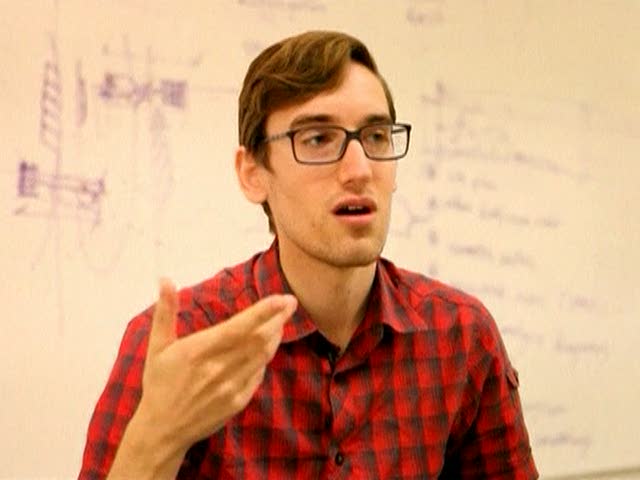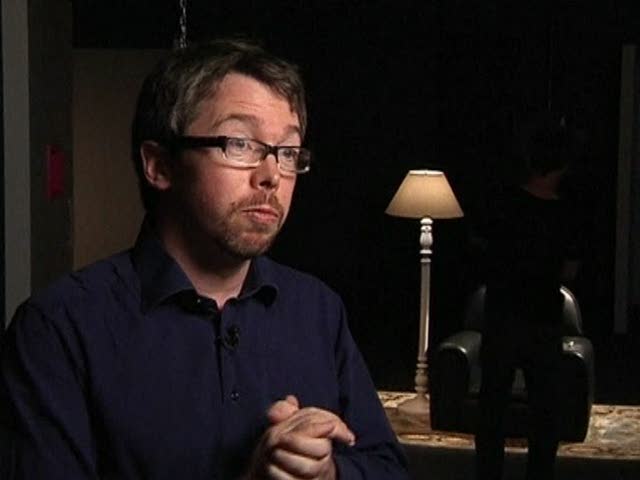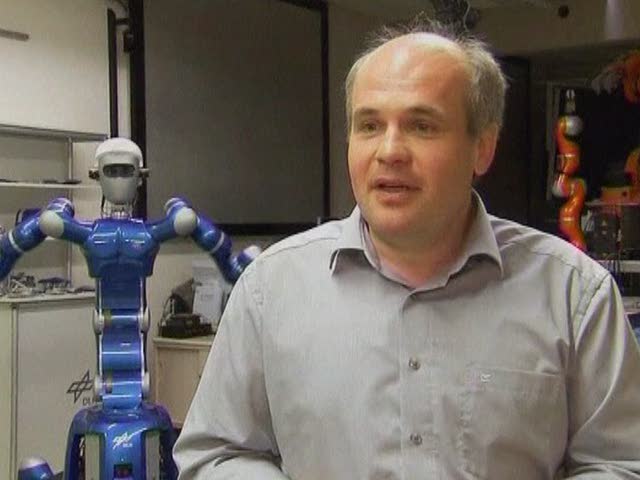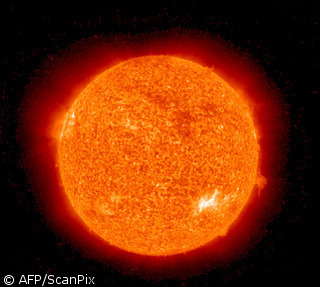Europeans are still failing to show world leadership in technology and research, a new report shows
Published:
11 February 2005 y., Friday
Europeans are still failing to show world leadership in technology and research, a new report shows.
The paper, published on 10 February has evaluated the EU research and development programmes and their impact on Europe's knowledge-base and potential for innovation.
While it argues that EU funds for the programmes make a "major contribution", it suggests that more resources, industry participation and simplified administration are needed for them to have a greater effect in future.
"We have somehow lost momentum", said Erkki Ormala, chair of the panel issuing the report.
"The EU is falling behind. And we are now under pressue not only compared to our traditional rivals like the US or Japan, but also China, India or Brazil. We are facing a much tougher competition in talent and knowledge than we are used to".
Research Commissioner Janez Potocnik considers the paper's results as a reason for doubling the funds in his portfolio within the next budgetary period of 2007-2013.
Šaltinis:
EUOBSERVER
Copying, publishing, announcing any information from the News.lt portal without written permission of News.lt editorial office is prohibited.
The most popular articles

The European Commission announced today the award of three of the six contracts for the procurement of Galileo’s initial operational capability.
more »
 Researchers at MIT have re-created Italian ballet star Roberto Bolle in digital form to study the capabilities of motion technology. The scientists say that in the future, motion sensors and scanners will be able to find potential health problems before they become apparent to the naked eye.
more »
Researchers at MIT have re-created Italian ballet star Roberto Bolle in digital form to study the capabilities of motion technology. The scientists say that in the future, motion sensors and scanners will be able to find potential health problems before they become apparent to the naked eye.
more »
 A Japanese engineer researching how animals move is building a robot that can run like a human being. Ryuma Niyama is attempting to crack the code of human propulsion, an achievement he says will one day lead to more efficient prosthetics.
more »
A Japanese engineer researching how animals move is building a robot that can run like a human being. Ryuma Niyama is attempting to crack the code of human propulsion, an achievement he says will one day lead to more efficient prosthetics.
more »
 A three-dimensional computer generated film shows, for the first time, what happens in the brain as it loses consciousness.
more »
A three-dimensional computer generated film shows, for the first time, what happens in the brain as it loses consciousness.
more »
 The Swiss Solar Impulse takes off from Brussels for a flight to the International Paris Air Show.
more »
The Swiss Solar Impulse takes off from Brussels for a flight to the International Paris Air Show.
more »
 An exhibition which doubles as a huge, interactive science experiment has openend in New York.
more »
An exhibition which doubles as a huge, interactive science experiment has openend in New York.
more »
 German researchers hope that their coffee-making, ball catching robot named Justin, will become man's new best friend. Justin is being developed for use in space or in the home.
more »
German researchers hope that their coffee-making, ball catching robot named Justin, will become man's new best friend. Justin is being developed for use in space or in the home.
more »
 Japanese scientists are working on a project to supply 13,000 TW of solar energy with the help of robots stationed on the moon to receiving stations on the Earth’s surface.
more »
Japanese scientists are working on a project to supply 13,000 TW of solar energy with the help of robots stationed on the moon to receiving stations on the Earth’s surface.
more »
 The first question anyone asks when they meet me is: "What does a corporate anthropologist do?"...
more »
The first question anyone asks when they meet me is: "What does a corporate anthropologist do?"...
more »
 Scientists in New York have discovered that fly ash, a by-product of coal, can be used as an ingredient in a new, lightweight material that could one day replace heavy metals to make car parts.
more »
Scientists in New York have discovered that fly ash, a by-product of coal, can be used as an ingredient in a new, lightweight material that could one day replace heavy metals to make car parts.
more »
 Chicago's Adler Planetarium is about to open what it says is an immersive space experience like no other in the world. Called Deep Space Adventure, it will take passengers aboard a futuristic starship for a virtual tour of the Universe.
more »
Chicago's Adler Planetarium is about to open what it says is an immersive space experience like no other in the world. Called Deep Space Adventure, it will take passengers aboard a futuristic starship for a virtual tour of the Universe.
more »